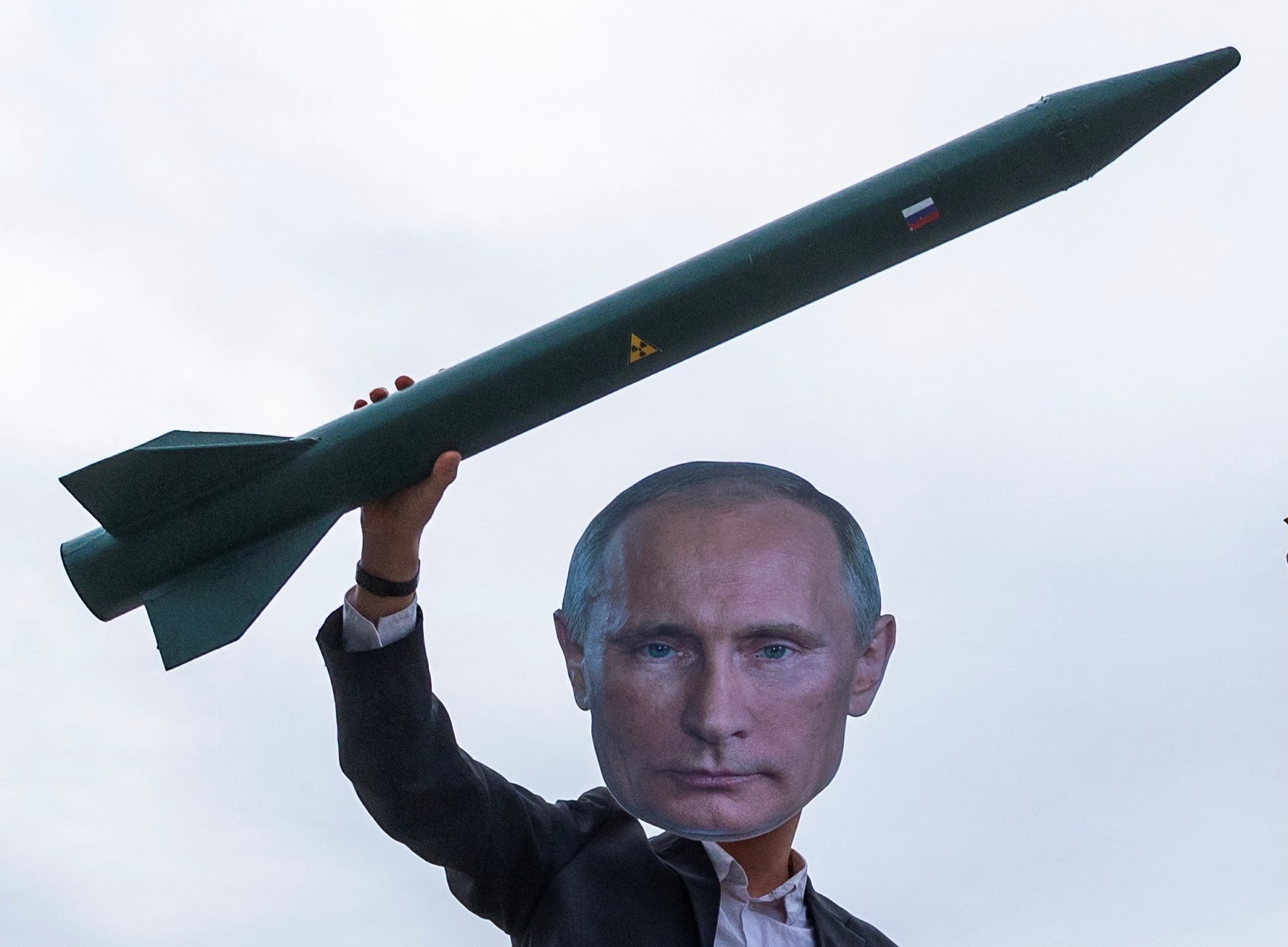
Russia and China, Nukes and Alliances
Last week, Moscow revived an oft-repeated threat to use nuclear weapons in Ukraine. Their use, of course, requires a few important things. They must be deliverable, and they must have a valuable target worth delivering to, ideally one that would inflict little collateral damage on untargeted or otherwise friendly cities. More important, they require a high degree of confidence in the attacking nation that its adversary cannot or will not retaliate with nukes of its own. The great unknowns are what the attacked country might do, the ability of the attacker to survive a response, and whether the initial strike would be sufficiently devastating. This uncertainty is precisely why there has not been a nuclear strike since Hiroshima and Nagasaki.
 Russia’s threats, then, belie other intentions. Its primary intent is to raise the potential price of war in Ukraine beyond what the U.S. is prepared to risk. But given all the unknowns, Moscow has so far declined to execute a nuclear attack. Perhaps more interesting was China’s response. Beijing’s position on Ukraine has been measured. It abstained on the first U.N. vote to condemn the war, rather than voting with Russia. But as the conflict progressed, China’s position changed thanks to deteriorating relations with the United States and the need for an allied nation and new economic partner. Enter Russia, which by then realized that not only would it not overrun Ukraine quickly but it might not win the war at all. As with China, Russia’s main obstacle was the United States.
Russia’s threats, then, belie other intentions. Its primary intent is to raise the potential price of war in Ukraine beyond what the U.S. is prepared to risk. But given all the unknowns, Moscow has so far declined to execute a nuclear attack. Perhaps more interesting was China’s response. Beijing’s position on Ukraine has been measured. It abstained on the first U.N. vote to condemn the war, rather than voting with Russia. But as the conflict progressed, China’s position changed thanks to deteriorating relations with the United States and the need for an allied nation and new economic partner. Enter Russia, which by then realized that not only would it not overrun Ukraine quickly but it might not win the war at all. As with China, Russia’s main obstacle was the United States.An alliance is far more than a press release and a handshake, although it is frequently mistaken as such. An alliance is the process of material cooperation and creating complementary weapons and forces to defeat an enemy. There are non-military alliances, but all alliances assume that both sides have or can acquire the tools needed to wage war successfully and at the right time. An alliance has a common goal: to establish the capability to significantly strengthen a joint force.
There has long been an assumption that Russia and China would create an alliance designed to break or at least weaken the United States. It has not happened. The U.S., aided by its own alliance in the North Atlantic, posed a land challenge to Russia. In theory, Russia could have used Chinese troops in the Ukraine war, but the distance posed logistical problems. Also Beijing’s interests were in keeping the U.S. from blockading its ports or creating a line of islands for protection. And besides, China and Russia have had an unhappy history sprinkled with numerous invasions and incursions. After an attack on the Ussuri River, China formed an anti-Russian agreement with the United States in the 1970s that included an intelligence gathering post for the U.S. in China.
That there has been additional tension between them is why it was surprising when, after Russia raised the possibility of the use of nuclear weapons, China said that their use against the U.S. was reasonable to consider, creating a merely spoken alliance between the two countries without committing to anything. China is a known nuclear power, and U.S. intelligence monitors the situation accordingly. Beijing’s statement, then, changes nothing. If we speculate on the purpose, it would be that Russia is facing peace talks that President Vladimir Putin has already publicly discussed, and China does not want to be facing an emboldened United States. By aligning temporarily with Russia and laying the nuclear card on the table, Beijing hoped to combine a spoken alliance with Russia with the perception that it does not take the U.S. capability as gospel.
But China is as likely to go nuclear as the U.S., so there is nothing pressing the U.S. to an alliance. Washington is content to let the war in Ukraine drain Russia and to let China obsess over its own economic problems. The U.S. has alliances in Europe and Asia, so it does not need the complexity of former alliances. Russia and China can wish they had the resources to build an alliance, but the most they can do is raise the specter of an implausible nuclear strike.
By George Friedman




No comments:
Post a Comment
Note: Only a member of this blog may post a comment.